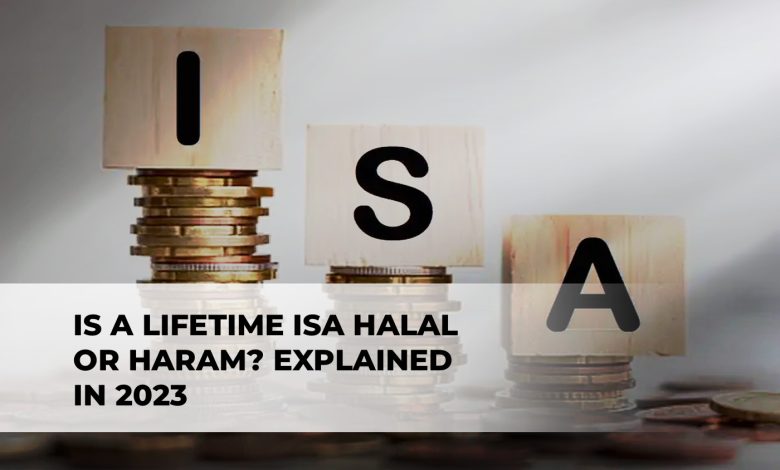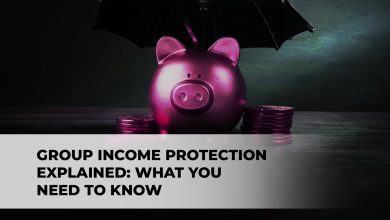
Lifetime ISA, or LISA, was introduced in 2017 to help people save for their first home or retirement. However, there has been an ongoing discussion within the Muslim community ever since its inception about whether the LISA is halal (allowed) or haram (forbidden) from an Islamic perspective.
To assess whether or not the lifetime ISA is a halal investment choice for Muslims in 2023, we will examine the idea of halal and haram in Islam, the fundamentals of Islamic finance, and the specific features of the LISA in this blog article.
Understanding Halal and Haram Investment Principles:
Investments that are halal and haram in Islam are determined by a set of guiding principles. These guidelines are founded on the more comprehensive definition of halal and haram in Islamic law, which covers all facets of a Muslim’s life, including their financial dealings.
Profit and loss sharing (PLS), in which both partners share the risks and rewards of the venture, is the foundation of halal investment concepts. This means that a fixed return should not be promised to the investor because that would constitute riba (usury), which is outright forbidden in Islam. Investors should strive to put their money into projects or businesses that benefit society and adhere to Islamic principles. Additionally, investments in companies that engage in activities against Islamic law, like gambling, pornography, alcohol, or tobacco, should be avoided.
Contrarily, investments in firms or ventures that are categorically prohibited in Islam are referred to as haram investment principles. This includes investments in companies that deal with alcohol, cigarettes, gambling, or pornography, as was already indicated. Investments in companies that participate in speculative or highly leveraged activities, including day trading or short-selling, are also included.
Islamic finance also places a strong emphasis on social and ethical responsibilities. This means that investments should also consider the wider interests of society and the environment in addition to being profitable. This is so because the foundation of Islamic banking is the idea of justice and fairness for all, which calls for people to act in ways that are advantageous to the community as a whole.

What About Lifetime ISAs?
The UK government created a Lifetime ISA (Individual Savings Account) kind of savings and investment account in April 2017 to aid people in saving for their first house or retirement. The Lifetime ISA’s salient characteristics are as follows:
- Eligibility: The Lifetime ISA is an option for UK citizens ages 18 to 39.
- Savings cap: The most that can be saved in a Lifetime ISA each year is £4,000. Then, up to a maximum of £1,000 per year, the government will add a bonus of 25% to the total amount saved. Accordingly, if you save the maximum allowed by law ($4,000) each year, the government will give you an additional £1,000 each year.
- Purpose: Buying a first home is possible with a Lifetime ISA up to a value of £450,000, or you can use the funds to fund retirement. If you use the funds to purchase a property, it must be your first home, and the Lifetime ISA must have been open for at least a year. You can start accessing the money tax-free at age 60 if you use it for retirement.
- Investment Options: Cash, stocks, and shares, or a mix of the two, are all acceptable investment options for the Lifetime ISA. The investment returns won’t be subject to taxes.
- Withdrawals: You can take money out of a Lifetime ISA at any time, but if you do so for any purpose other than a first-time home purchase or retirement savings, you will be subject to a 25% penalty fee. This implies that you must pay a £250 fine for withdrawing £1,000 in total.
- Transfers: Your Lifetime ISA may be switched from one provider to another at any time, as well as into another kind of ISA.
So, Is Lifetime ISA Halal or Haram?
Islamic finance is centered on the tenets of justice, fairness, and avoiding haram or prohibited acts, like gambling, interest-based transactions, and funding activities deemed detrimental to society. Investments in Islamic finance must be made in halal organizations or compliant with Islamic standards, meaning they adhere to those norms.
Some Islamic finance experts are most concerned about the government bonus in Lifetime ISAs because it can be viewed as a fixed return. This is so that the government will guarantee the bonus, which is based on the amount that was deposited into the account. According to some academics, the incentive is not a set return because it depends on the person making deposits into the account and fulfilling specific requirements, such as using the funds for a first-time home purchase or retirement.
The money’s investment in the Lifetime ISA is another possible problem. The ISA provider may have invested in companies that engage in haram activities, which would be against Islamic financing rules. Savings enthusiasts can, however, decide to put their money in philanthropic funds that stay away from businesses engaged in haram practices.
In conclusion, the way a Lifetime ISA is set up and invested determines whether it is halal or haram. Investors who are worried about a Lifetime ISA’s conformity with Islamic principles should consult a competent Islamic finance expert to ascertain whether the account is consistent with their personal values and beliefs.
Alternative Halal Investment Options:
For those who want to adhere to Islamic financial principles while saving for a first home or retirement, several halal alternatives to Lifetime ISAs may be of interest. Here are some alternatives to think about:
Shariah-Compliant Savings Accounts:
Savings accounts that adhere to Shariah regulations and are offered by numerous banks and financial institutions. Instead of paying interest, these accounts offer a profit rate that is based on the returns made by the underlying investments. Although not guaranteed, the profit rate might be comparable to that of conventional savings accounts.
Islamic Mortgages:
If you’re looking to buy a house, an Islamic mortgage is an alternative to conventional mortgages that complies with Shariah. In Islamic mortgages, the bank or financial institution buys the property and later sells it to the borrower at a higher price over time instead of charging interest. This enables the borrower to repay the loan over time without paying interest.
Investment Funds That Adhere to Sharia Law:
These funds may be an option for people wishing to save for retirement. These funds steer clear of businesses that participate in haram activities and instead invest in those that are regarded as halal or compliant with Islamic financial standards.
Investment Funds That Adhere to Zakat Regulations:
Some investment funds are made to adhere to zakat regulations, which call for giving a certain amount of one’s wealth to charity every year. These funds are intended to assist investors in increasing their wealth while still adhering to their zakat duties.
Real Estate Investment Trusts (REITs):
REITs are financial instruments that let investors purchase various real estate assets. Some REITs are created to be Shariah-compliant for those wishing to invest in real estate while following Islamic finance standards.
Let’s Wrap It Up:
In conclusion, it is complicated and delicate to determine if a Lifetime ISA is halal or haram. Some Islamic finance scholars may consider the Lifetime ISA haram due to the government bonus and potential investments in businesses that participate in haram activities. Still, others contend that it can be set up and invested by Islamic financial principles.
A person’s choice to invest in a Lifetime ISA or any other financial instrument should ultimately be founded on their own values and beliefs. Therefore, it’s crucial to speak with a trained Islamic finance professional to determine which options are best for their requirements and objectives. It is essential to perform careful research and analysis before making any financial decisions, as with any other decision.






